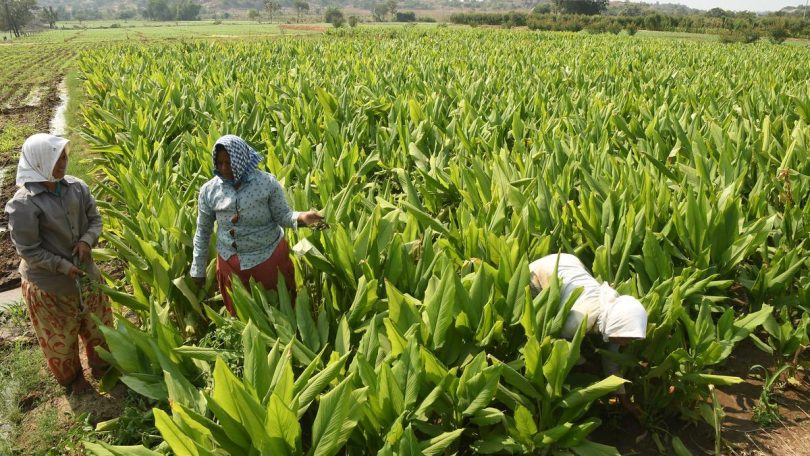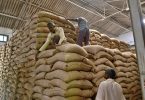[ad_1]

Turmeric is grown in about 2.5 lakh acres across Telangana, with the old Nizamabad and Karimnagar districts accounting for a third of the State’s crop.
| Photo Credit: NAGARA GOPAL
As one drives through the vast expanse of fields along National Highway-44 and National Highway-63, criss-crossing the Armoor and Balkonda Assembly constituencies of Nizamabad district, the most striking feature to catch the eye is the turmeric crop, in various stages.
Turmeric spiced up the Assembly .elections of 2014 and 2018 in this region, as well as the 2019 Lok Sabha election, but seems to have lost its sheen this time. Ostensibly, Prime Minister Narendra Modi’s announcement of a National Turmeric Board in two public meetings in Mahabubnagar and Nizamabad in October, has fulfilled a long-term demand of farmers and removed it is an election issue. However, conversations with progressive farmers from these two constituencies indicates that they are not taking the announcement seriously.
Turmeric is grown in about 2.5 lakh acres across Telangana, with the old Nizamabad and Karimnagar districts accounting for a third of the State’s crop. Armoor is the main hub of turmeric cultivation. Posh houses with four wheelers parked in the porticos and tractors outside are a common sight in the villages along these two National Highways as commercial crops such as turmeric and maize have transformed farmers’ lives in about 100 villages.
Pivotal poll issue
These rich turmeric farmers can make or mar the chances of any candidate in the region, strongly backed by the powerful Grama Abhivruddhi Sangham or Village Development Committees, whose diktat is even followed by elected gram panchayat leaders. In 2014, turmeric farmers themselves entered the electoral field with 27 nominations, and followed up in the 2019 Lok Sabha polls with 183 in the fray. In fact, another 35 farmers from Nizamabad travelled all the way to Varanasi to file their nominations there, in the seat which was also contested by the Prime Minister.
Former MP and Bharat Rashtra Samithi MLC Kalvakuntla Kavitha, who had promised to take up the demand for the Turmeric Board in 2014, knows first-hand how the issue can turn counter-productive. In the 2019 Lok Sabha election, the 183 turmeric farmers who entered the fray as Independents played spoiler, garnering over one lakh votes and resulting in her stunning defeat at the hands of BJP candidate Dharmapuri Arvind.
The BJP MP then signed a document on bond paper, vowing to quit if he was not able to get the Turmeric Board for Nizamabad. From his election in 2019 till 2023, he too faced the wrath of the farmers wherever he went. After an uproar, in 2021, the Centre had announced that it would set up a regional office of the Spices Board in Nizamabad insted of a Turmeric Board, but this substitution did not go down well with the farmers.
Sceptical reception
However, even the fulfilment of their demand through Mr. Modi’s grand announcement has not been taken seriously by the farmers of the region. “If the BJP government was so sincere in its promise of setting up a Turmeric Board, why did the Prime Minister not lay the foundation stone when he addressed the public meeting in Nizamabad in October? This shows that they only wanted to woo the voters with this promise yet again,” said Katipally Narsa Reddy, former sarpanch of Jakranpally and a big turmeric farmer.
Kotapati Narasimham Naidu, founder president of the Telangana State Turmeric Farmers Association and an influential leader among the turmeric growers is bitter. “Days after the announcement of the board, the Shiv Sena MP from Hingoli issued a statement that Sangli is the biggest turmeric market and growing area. Hence, the NTB should come up in Maharashtra only,” he said. “After the PM’s announcement, the gazette notification was issued, but there is no mention whether the NTB will be set up in Nizamabad or in Telangana. Whom are these leaders fooling?” he asked.
MSP critical due to high input costs
The farmers’ twin dream is to have a board and a Minimum Support Price for the crop, he added. Farmers often invest heavily in the hope of getting good returns; turmeric is harvested and arrives in the market between February and June, with normal prices ranging between ₹4,500 to ₹8,000 per quintal, but costs are also substantial.
“Till the farmers are assured of MSP, there is no meaning in helping them. We are investing about ₹1.50 lakh per acre and the yield is 25 quintals an acre. The return on this is ₹1.25 lakh per acre, which does not even cover the cost of investment,” said Musku Sayi Reddy, the former chairman of the Nizamabad District Cooperative Marketing Society.
After close to a decade of dominating the elections as a major issue, the demand for a Turmeric Board has petered out of the campaign of the leading parties, but farmers have still been left unsatisfied.
[ad_2]
Source link







